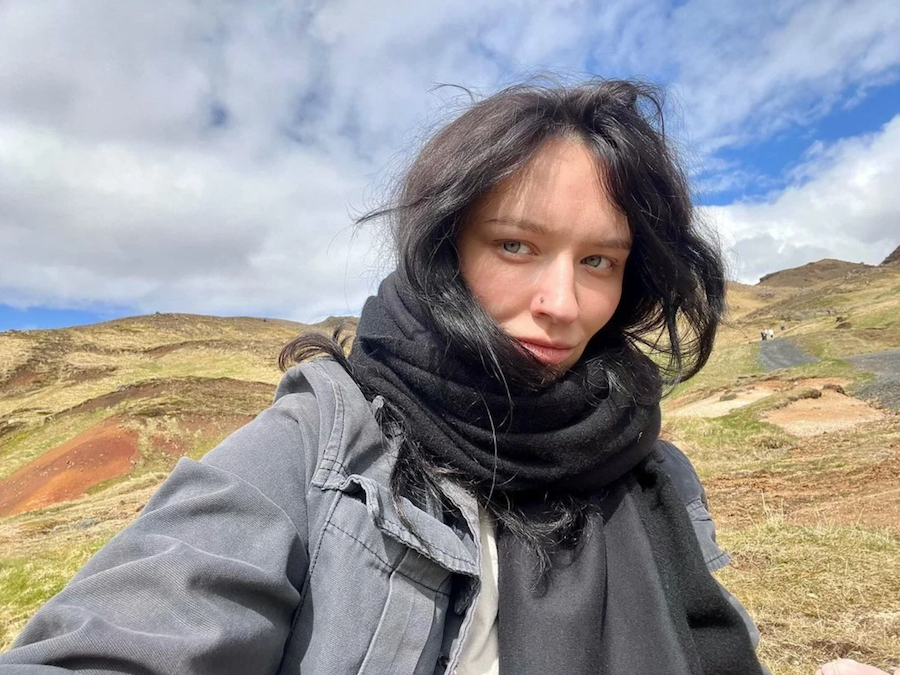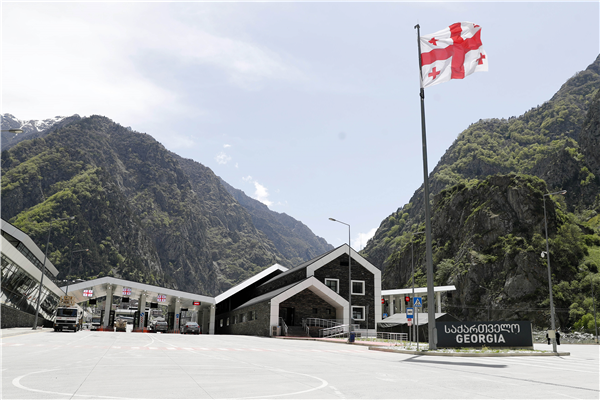Crucial border: why Georgia denies entry to a number of Russian activists and journalists
Why Russian oppositionists are not allowed into Georgia
Georgia is one of the most convenient countries for Russians, who have been leaving the country en masse since the end of February. Some are fleeing from unfair criminal prosecution, some are escaping possible mobilization, and others are running from propaganda and instability. But lately, the voices of those who were not allowed into a friendly and hospitable country have been heard more and more often. “Novaya Gazeta. Europe” collected their stories.
“They didn’t ask me anything in particular and didn’t even search us. They were not interested in anything, they did not ask any questions, just told us to wait and that’s it. I had to wait 14 hours, they only offered to Gove up, pick up my passport and go back”, says Mediazona photojournalist David Frenkel, who faced an entry denial in March. “They did not know anything, even at some point they apologized for not being `able to solve anything, they were waiting for an answer from ‘above’. After 14 hours they said that the refusal had come.
- ‘Not enemies’ – how Georgia welcomes emigrants from Russia and Belarus
- Are Russian citizens who flee their country welcome in Georgia?
- Stories of refugees fleeng war-torn Ukraine and seeking new home in Georgia
Both journalists are sure that the denial of entry is related to their professional activities.
“I have no doubt that the only reason is my work as a journalist in Russia. I know dozens of cases of refusals and several dozen more cases when a person was kept at the border for hours, but still they let them in. All these are in the sphere of interests of the Russian authorities, in one way or another. Although some of them are extremely non-public, so it is unlikely that the Georgian authorities simply googled them. I also know about specific issues, for example, participation in some political movements in Russia”, says Frenkel.

He notes that among his acquaintances who have been living in Georgia for a long time, many do not want to leave the country once again, because they are afraid of not being able to enter back.
There are rumors among those who have recently arrived that when communicating with border guards, it is worth showing a contract for an apartment rented in advance for a long time. However, it did not help Olga Borisova, a member of Pussy Riot.
On June 20, she was returning to Georgia after the European tour of the group, which supported the Ukrainians affected by the war. She rents an apartment with a guy who was also waiting for her at home in Tbilisi.
“Upon arrival, as usual, I gave my passport at the border. I noticed that the girl in the window took a photo and sent it to someone. I waited for 30 minutes, then I was informed that entry was denied. I was put back on the plane and sent first to Istanbul and then to Amsterdam – from where I originally flew”, she said.

Unlike Fishman and Frenkel, Borisova is sure that this is a misunderstanding that will soon be resolved:
“It’s hard for me to say that this is a pro-Putin government, because they let so many people in. It’s just that the mechanism has not been fully debugged: no one expected the war and such an influx of people from Russia – including activists – those people who really influence politics. I hope that all this will be resolved, I really want to return”.
The Pussy Riot participant does not rule out that her personal hater Igor Bendega, who, according to her, has been harassing Olga on social media for more than 10 years, caused her problems at the border. A Twitter user under the nickname Kane aactually boasted on social media that he had sent a message to the Ministry of Internal Affairs and border guards that Borisova was allegedly preparing a terrorist attack.
Whether the decision to refuse Borisova is connected with the harassment on social media is not known for sure. In all three cases described above, the border guards did not give a specific reason for the denial of entry. According to the law, the Ministry of Internal Affairs of Georgia has the right to do so.
But in the case of the entry ban for blogger Insa Lander, who has been living in the neutral zone between Georgia and Russia for almost two weeks, the department nevertheless decided to explain itself. The Ministry of Internal Affairs of the country said that she could pose a threat to state security, since a criminal case on terrorism was initiated against her in Russia.
“If a person is prosecuted for such international crimes as terrorism, drug smuggling, human trafficking, then this person may be denied entry to Georgia in the interests of the state”, the Interior Ministry said.
Insa calls her persecution in Russia political persecution.
According to “Novaya Gazeta. Europe” there are at least five more cases of unjustified entry bans for Russians who took an active political position in their homeland.
What lawyers and human rights activists say
However, the experts interviewed by Novaya Gazeta. Europe”, still do not see political overtones in what is happening.
“I help a huge number of people with their arrival in Georgia and I know that there are no blacklists of oppositionists and there never have been any. This is a technical issue of the Ministry of Internal Affairs. The main problem associated with the entry ban is the lack of a transparent system”, says Yegor Kuroptev, director of the Free Russia Foundation.
In Georgia, there is no clear understanding of what list of documents is sufficient for a person to come to the country. To get a visa to Europe, for example, you need to buy insurance, take photos, collect a clear list of documents. But in Georgia there is no such system, there is no visa regime for Russians”.

The expert notes that due to the lack of a visa regime, control at the border is stricter, because no one checks a potential entrant beforehand. In addition, after the start of the war, the number of people wishing to come to Georgia increased dramatically. In proportion to the flow, the number of high-profile cases of failures also increased, although this was also the case before the war.
“There is a very large influx of people who are not activists and have nothing to do with politics at all. And many never enter the country. But even among the activists, many end up moving in”, continues Kuroptev. “An article about terrorism is a different matter. It is necessary to seriously prove that this is not the case [and you are innocent].
With such an article, you need to come to the border with a ready-made package of documents explaining why you need to be let in and why you have nothing to do with the charges. Again, these are isolated cases: dozens, even hundreds of people who are now being persecuted in Russia, against whom articles are open, come to Georgia without any interference. Yes, they can be kept at the border for one and a half to two hours, interrogated about “the purpose of the visit, with whom you communicate, where you are going”. Yes, it gets on your nerves, but as a result, they always cross in”.
Lawyer Nika Simonishvili from the human rights “Georgian Young Lawyers Association” (GYLA) also complains about the lack of a clear and transparent scheme. However, he does not rule out that the border guards still have stop lists.
“The police say, ‘You can’t enter Georgia.’ And there are no explanations. In most cases, this concerns citizens who are blacklisted by the Georgian security service. Often these are those whose activities are associated with criticism of the Kremlin and the government. When Mikhail Fishman was not allowed in, we demanded that the authorities explain why. But we received no explanation.
I think that the government of Georgia, at times, is afraid to do something that can provoke a bad reaction from the Russian authorities. However, no one officially talks about this and, unfortunately, there are no formal explanations for this”, he notes.
It was difficult in the past too
Some Russian oppositionists and independent journalists faced entry bans to Georgia even before the war. For example, lawyer Lyubov Sobol said that she was forbidden to cross the border last August. According to her, she also had no formal reasons for refusal.
“I have not been to Abkhazia, there were no other incidents that could be considered unfriendly. I have many acquaintances in Georgia, I like this country, its culture and language. And such a decision is quite insulting and unpleasant, even in some personal terms”, she told Dozhd.
The same thing happened to politician Dmitry Gudkov, who at the end of January tried to come to Tbilisi from Kyiv.
“At the state level, a decision was made to deport me back. The decision is political. Everyone was informed about my visit, I came at the official invitation. Meetings with activists and diplomats were planned. There were no explanations, only sympathetic gestures of the border guards”, he said.
The specific reason for the refusal to Gudkov has not yet been named.
“There is a clause in the law, according to which the authorities have the right not to name reasons. The decision was made at the very top at the last moment. As I was told, the Georgian leadership does not want to upset Putin. Therefore, just in case, they do not let in people who are unpleasant for Putin and deport them”, he said in an interview with Novaya Gazeta. Europe”.




















